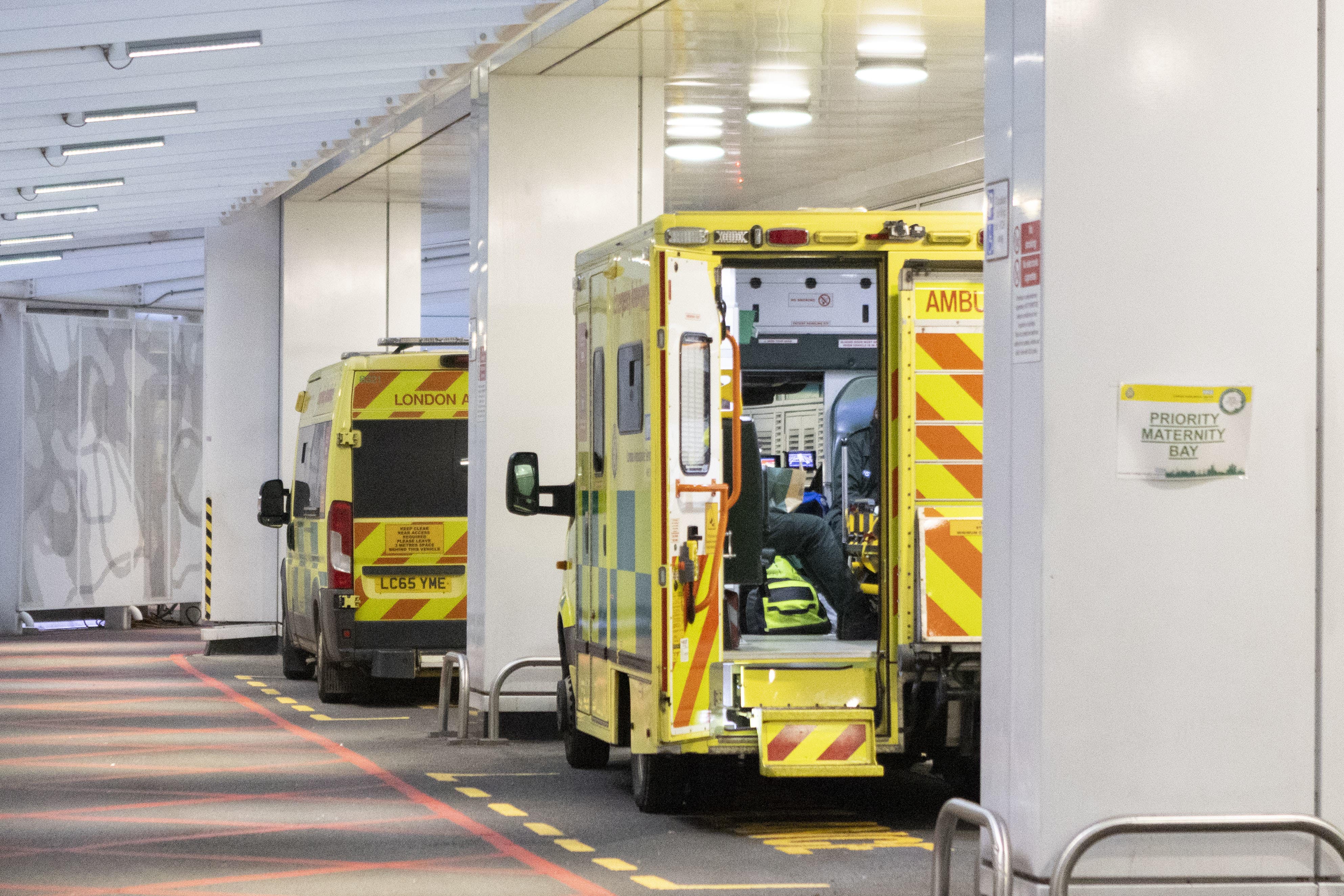Ambulance hospital handover delays in England hit new high
More than 12,500 patients last week waited over an hour to be transferred.

Your support helps us to tell the story
From reproductive rights to climate change to Big Tech, The Independent is on the ground when the story is developing. Whether it's investigating the financials of Elon Musk's pro-Trump PAC or producing our latest documentary, 'The A Word', which shines a light on the American women fighting for reproductive rights, we know how important it is to parse out the facts from the messaging.
At such a critical moment in US history, we need reporters on the ground. Your donation allows us to keep sending journalists to speak to both sides of the story.
The Independent is trusted by Americans across the entire political spectrum. And unlike many other quality news outlets, we choose not to lock Americans out of our reporting and analysis with paywalls. We believe quality journalism should be available to everyone, paid for by those who can afford it.
Your support makes all the difference.Ambulance handover delays at hospitals in England have hit a new high, with one in six patients last week waiting more than a hour to be passed to A&E teams.
Just over one in three had to wait at least 30 minutes.
The numbers are higher than at any point in recent winters.
Calls to NHS 111 have also reached near-record levels, driven by concerns over strep A infections, in fresh evidence of the growing pressures facing the NHS as winter gets under way.
A total of 25,182 handover delays of half an hour or longer were recorded across all hospital trusts last week, according to NHS England.
This was 34% of all arrivals by ambulance, up from 31% the previous week.
The figure stood at 23% in the equivalent week in December 2021, and 15% in December 2020.
Some 12,534 patients, 17% of the total, had to wait more than an hour to be handed over.
This is up from 15% the previous week, and compares with 13% at this point in 2021 and just 10% in 2020.
A handover delay does not always mean a patient has waited in the ambulance.
They may have been moved into an A&E department but staff were not available to complete the handover.
But the increasing level of delays reflects the struggle faced by hospitals in finding space for new arrivals.
Figures also published on Thursday show an average of 13,245 hospital beds per day last week in England were occupied by people ready to be discharged – 26% higher than the equivalent week in December 2021.
Analysis of the latest data by the PA news agency shows that, among those trusts reporting at least 500 ambulance arrivals last week, the highest proportion of patients waiting over an hour to be handed over was 62% at Royal Cornwall Hospitals (336 out of 545 patients).
This was followed by Northern Lincolnshire & Goole at 51% (331 out of 653 patients), Shrewsbury & Telford Hospital at 50% (276 of 550), University Hospitals Bristol & Weston at 49% (352 of 716), Norfolk & Norwich University Hospitals at 46% (298 of 644) and Gloucestershire Hospitals at 45% (291 of 644).
NHS trusts in England have a target of 95% of all ambulance handovers to be completed with 30 minutes, with 100% to be completed within 60 minutes.
Meanwhile a total of 706,129 calls were made to the NHS 111 helpline last week, up 60% on the previous week.
This is the highest number of 111 calls ever recorded, save for two weeks in March 2020 at the start of the Covid-19 pandemic, and is likely to reflect growing public concern about the spread of strep A infections.
Professor Sir Stephen Powis, NHS national medical director, said: “This huge increase in calls to NHS 111 is understandable with concerns about winter viruses – including strep A – a top priority for the public, but it is more important than ever that the public uses 111 online where possible to get important information about non-emergency health conditions and to be signposted to the best possible care.
“With industrial action planned today and next week, NHS teams are working hard to minimise disruption and while people may see their local services impacted, they must continue to call 999 in a life-threatening emergency during strikes, as well as attending pre-booked appointments as planned unless they have been contacted for it be rearranged.”
Nursing staff are taking industrial action on Thursday in England, Wales and Northern Ireland, and are due to stage further strikes on December 20.
The number of flu cases in England is continuing to increase, NHS figures show.
An average of 1,162 flu patients were in hospital beds each day last week, up 63% from 712 the previous week.
Some 87 flu patients were in critical care beds, up 45% week-on-week.
In the equivalent period last winter, just 25 patients a day were in hospital with flu and only one was in critical care.